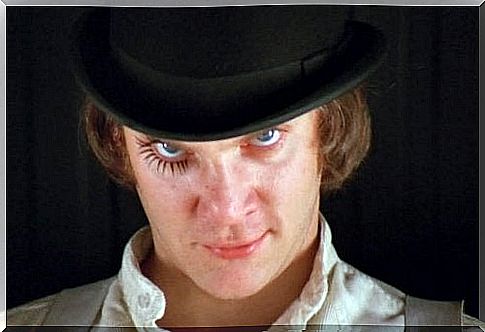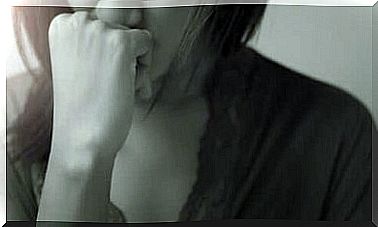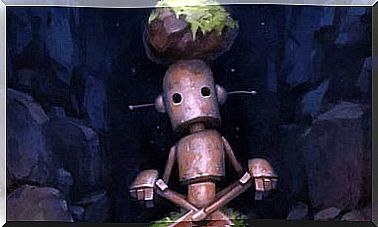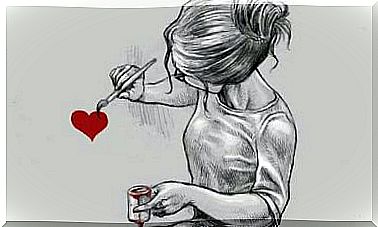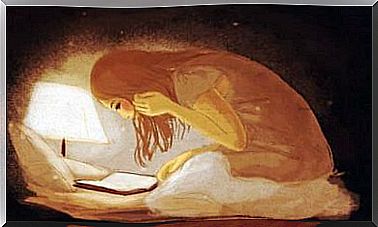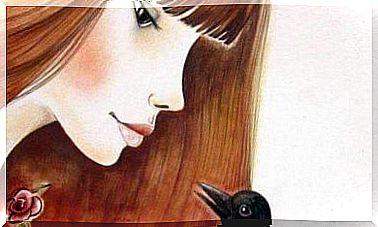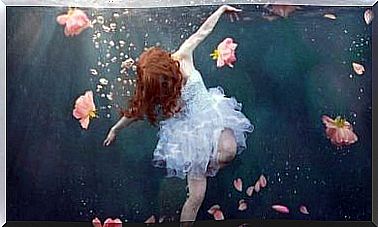Flight Over A Cuckoo’s Nest, Between Freedom And Madness
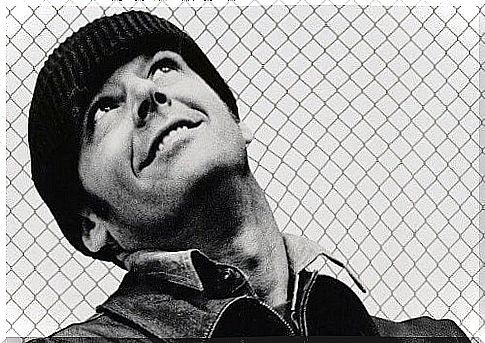
In memory of the late Miloš Forman, director of great films like Hair or Amadeus, today we present one of his greatest films: Flight over a cuckoo’s nest (1975). The latter is probably the one who offered his best role to Jack Nicholson.
Flight Over a Cuckoo’s Nest was directed by Forman, who was inspired by the homonymous novel by Ken Kesey. It is one of those great films that has turned into a classic in the history of cinema. This movie gave us unforgettable scenes, scenes that other movies have alluded to. The story highlights Nicholson’s sublime acting, among other splendid things.
Flight over a cuckoo’s nest was awarded 5 Oscars. We find Randle McMurphy there who is condemned to go to jail. To avoid this, he decides to pass himself off as a madman. He will therefore be interned in a psychiatric hospital where he will be evaluated and will cohabit with the rest of the patients.
There we find nurse Ratched, who will be the main protagonist. Ratched is an uncompromising woman who treats patients with contempt and smugness. McMurphy will be a breath of fresh air for other patients. He will awaken their desire for freedom. This will lead to endless clashes with Nurse Ratched.
This film denounces asylums and mental institutions. He criticizes the way “crazy people” have been treated throughout history. It is a war cry for all these eternally forgotten people and a call for the freedom of all individuals.
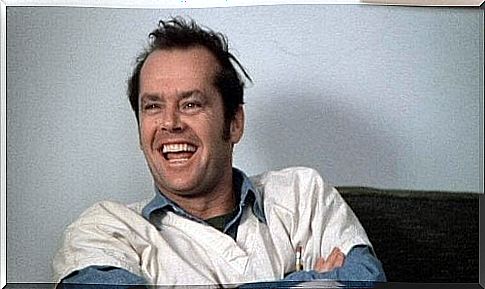
The fools in Flight over a cuckoo’s nest
Who are the fools? The answer to this question may seem simple. Now, if we dive into this story, we see that the idea of “normal” changes over time. Social norms, advances in medicine, science and other fields have influenced the conception of insanity. What at one time is considered mental illness may not be at another.
The mad have not always been the same. They were not excluded in the same way either. Sometimes we tried to “cure” them by subjecting them to treatments like lobotomy. Other times, they were persecuted to death. Anything that comes out of “normal”, “conventional” is, at some point, persecuted. This happened in the Middle Ages with witchcraft or with certain diseases such as leprosy. History of madness in the classical period is a work by Foucault which takes up very well all this idea of exclusion and persecution of madness.
Foucault said in his work that over time, we tried to transform the madman. To “train” him so that he becomes normal. How did we achieve this result? Using authority and certain treatments that only canceled out the patient. By transforming him, therefore, into a submissive person. This is precisely what we observe in Flight Over a Cuckoo’s Nest. McMurphy, who is not mad but a delinquent, arrives at the asylum and sees all these people acting without will.
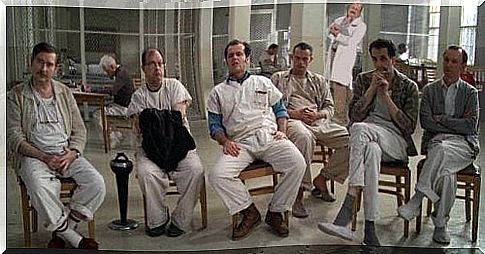
The nurse plays with the fear of the sick. We see this with the case of Billy, an insecure stutterer who has tried to kill himself several times. Ratched is friends with Billy’s mother. When he does something wrong, she puts pressure on him. She reminds him that she tells her mother everything. The madmen of this institution obey without complaining. They are afraid, afraid of electroshock and lobotomy if they do not obey.
McMurphy, since he is not submissive, is a character who refuses to obey. He seeks freedom. It’s interesting how he awakens this same desire in the rest of the patients. How he manages to get them out of this state when they had been completely canceled and manipulated. In the end, they all manage to face Nurse Ratched.
Seeing her authority challenged, she will do everything possible so that McMurphy does not get off easily. Ratched is the film’s main antagonist. He is a person who seems sensible but who nevertheless imposes his will on the patients. She puts pressure on them, torments them and manipulates them as she pleases. Why? So that they behave like “normal people”, submissive and without the slightest critical capacity.
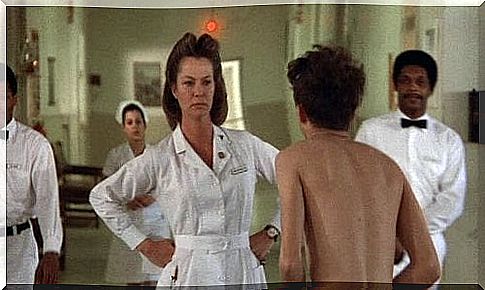
In search of freedom
As of now, the article contains spoilers. So don’t read on if you haven’t seen the movie! In the midst of all this madness, this unreason, we cannot forget that these patients are people too. They have feelings, desires, sufferings. Nurse Ratched has played her role so well that she can have a whole army of “lunatics” under control. As if it were a flock of sheep.
It is interesting to pay attention to the title of the film. The title in English ( One flew over the Cuckoo’s nest) can be interpreted in two ways. On the one hand, in a familiar register, cuckoo’s nest is a derogatory way of calling fools. On the other, he refers to an infantile rhyme that is mentioned in the novel: “there were three geese that were flying; one flew east, the other west and the last over a cuckoo’s nest ”. It refers to the freedom of each individual to choose their own path in life.
If we follow this last sense, we realize that this idea of triad-shaped fate is also present in the film. Freedom is the engine that keeps McMurphy moving. She pushes him to defy the rules of the institution. However, he also shows solidarity with other people and tries to guide them, in turn, to freedom.
McMurphy will gradually move towards this release of patients. First, by offering them to watch a baseball game. Then, by going fishing on a boat and getting them out of the monotony. Finally, with the celebration and the presence of women. McMurphy feels sorry for Billy because he is young and has hardly experienced anything. Something also binds him to the Indian chief, an enigmatic and lonely figure.
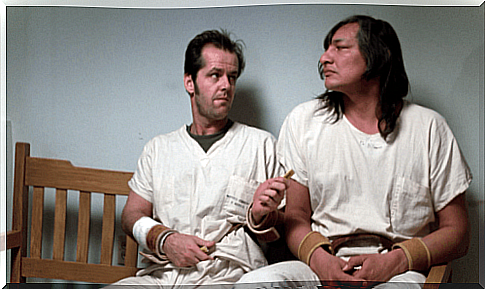
Returning to the idea of the triad, we see that three characters achieve freedom. Billy, McMurphy and the Indian Chief. These are the three birds of rhyme. The first, as we said, is a youngster full of insecurities and problems with his mother. Ratched knows this and has buried his desires for freedom. McMurphy woke them up, giving Billy the chance to have fun with a woman. The moment he is discovered, Billy faces two perspectives: the fear of the consequences and the happiness he feels for himself. But he can’t take all the pressure Ratched is putting on him. He ends up committing suicide but attains, with death, a certain form of freedom.
McMurphy is convicted of disobeying. He is lobotomized and remains in a practically vegetative state, without will and without freedom. The chef, who has passed himself off as a deaf mute for years, is going to take pity on him. He’s going to kill him to free him. This act is kind of a favor because McMurphy freed him and made him open his eyes. This last character is, in the end, the only one to achieve real freedom: he manages to escape the asylum.
McMurphy managed to get the patients out of this Platonic cave in which Ratched had locked them. The final scene of the Indian chief running towards freedom is truly revealing and full of hope. It doesn’t matter if some had to die to achieve freedom. It doesn’t matter what fate awaits the Indian chief. They triumphed, and that’s what matters.
